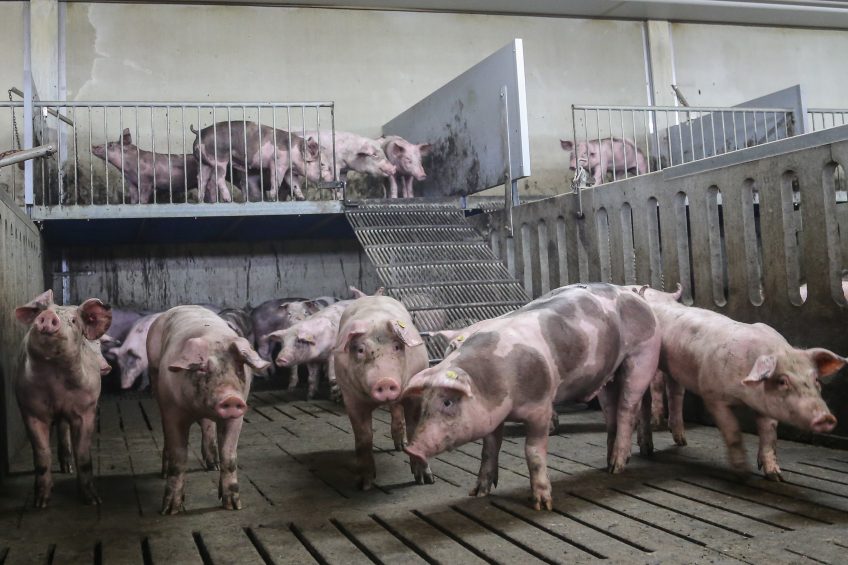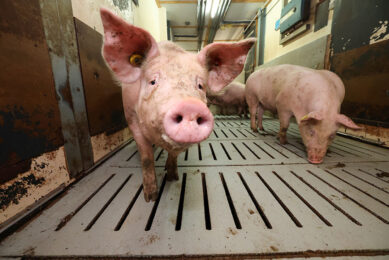German pigs appreciate 2-level pens in trial

German researchers have embraced the idea of introducing 2-level pens as a way to increase space allowance for piglets. They concluded this after tests.
Researchers at the University of Veterinary Medicine (TiHo) in Hanover, Germany reported about their research in the Journal of Applied Animal Welfare Science, which was published this month.
Introducing an elevated platform to piglets
The researchers described how in this study, they explored the possibility of introducing an elevated platform to a piglet pen as a way of increasing available space and creating functional areas.
On the platforms, the scientists offered 9 different manipulable materials. In 4 batches, 40 weaned piglets were kept for 5 weeks in the 2-level pen. They recorded the animal behaviour on video, 2 days per week.
More piglets on the platform
In the afternoon, more piglets were on the platform than in the morning or at night, they noticed. The animals also preferred the area under the platform more in the morning and at night than in the afternoon.
Up to 36 piglets were counted there simultaneously, mainly in the recumbent position. On and under the platform, air velocity and ammonia concentration were within the recommended ranges.
The study concluded that a 2-level pen is a feasible option to increase space allowance and to create functional areas in a piglet pen.

Young piglets encounter many challenges during the weaning phase. This weaning special not only identifies some of the problems, but also industry-wide solutions.
Finisher barn with platforms in the Netherlands
Last year, a new type of finisher barn applying the same principles was opened at Wageningen University’s trial farm in the Netherlands. Here, different systems are also being tried and tested.
The system is also in use in some commercial farms in the Netherlands. Producers are happy with the approach.
The research article was written by Michaela Fels; Franziska Lüthje, Alice Faux-Nightingale and Nicole Kemper, University of Veterinary Medicine (TiHo), Hanover, Germany.











